Questionnaire Survey: Employers
In cooperation with partners in the “Work in the EU – Why Not?” project, we sent out a questionnaire to 150 entrepreneurs, companies and businesses in the Břeclav District. Fifty percent of the questionnaires were returned. We have processed these 75 questionnaires in relation to the topics that are the subject of our study:
1. Of 150 questionnaires that were sent out, 75 were returned.
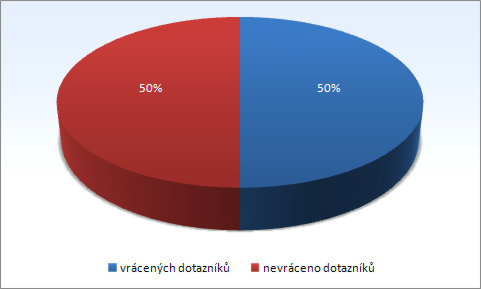
2. A total of 64 companies employ graduates from the school that are involved in the project.
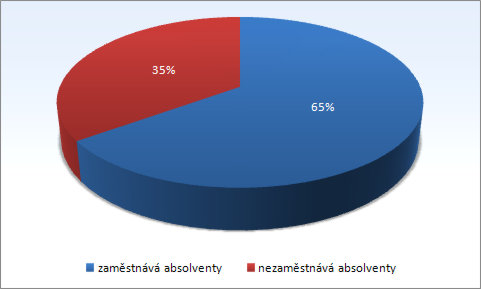
3. At 90% of the companies, graduates are employed in positions that correspond to the graduate’s field of study and area of emphasis.
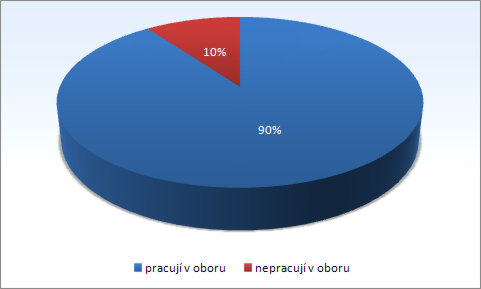
4. The majority of companies do take language skills into consideration. In the majority of cases, specifically 82% based on the replies to our survey, employers primarily require direct oral communication skills and intermediated communication skills (e.g., telephone conversations). The employers who participated in the survey also look for written communication skills: 87%. Only a very small number of the companies that responded to our survey require translating skills (the translation of technical and professional documentation) – 15%.
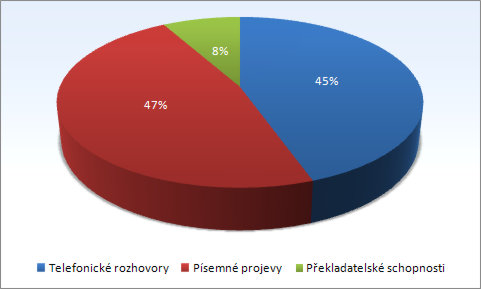
5. The evaluation of the graduates’ language skills on the part of employers is negative. Of the 75 companies responding to our survey, 15 did not provide a reply to this question; 5 of the companies rated this skill at Level 2; 25 at Level 3; 19 at Level 4; and 11 companies rated this particular skill as being unsatisfactory.
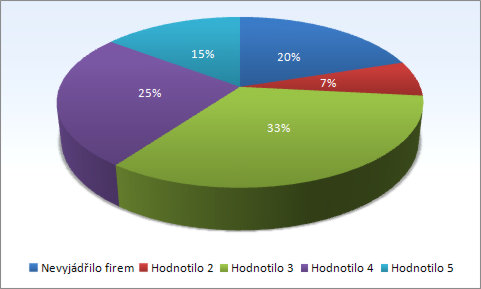
6. All of the employers who responded (100%) do however think it is necessary to improve language skill training at secondary schools and replied with a resounding YES.
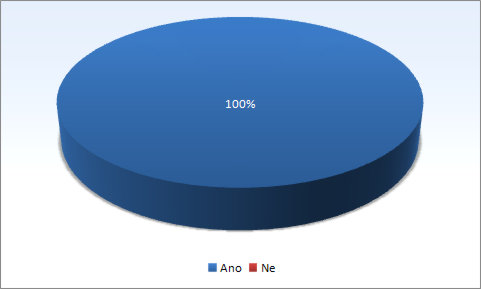
7. Awareness of legal employment relationships on the part of graduates was also rated as being very low, as is reflected in the replies we received to this question. Of the companies that replied, 9 did not provide any answer at all; 1 employer rated graduate skills in this area at Level 1; 2 gave it a Level 2 rating; 31 of the companies consider graduate skills in this area to be satisfactory (Level 3); and 17 employers showed complete dissatisfaction with the knowledge graduates have when it comes to legal awareness and gave this skill an unsatisfactory rating.
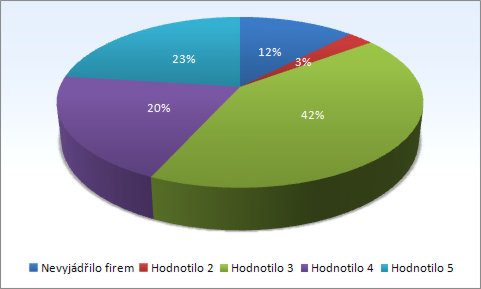
8. Working with computers is not a problem for students or graduates. Almost all of the employers rated skills in this area positively. Only 2 companies out of the 75 that responded to our survey replied negatively to the question on PC skills. The remaining companies are satisfied with the level of skills and knowledge graduates have in this area.
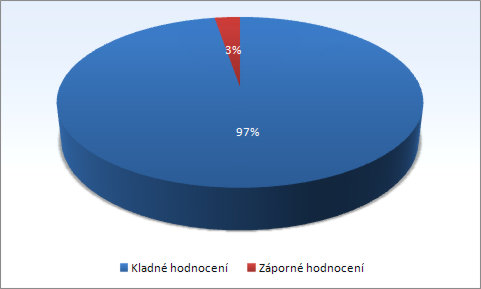
9. In reply to the question of whether it is necessary to increase the level of competency with regard to PC skills, 9 of the employers did not provide an answer; 29 companies are unsatisfied with the knowledge the graduates currently have and would welcome increased skills when it comes to working with PCs; and 37 employers are satisfied with the knowledge graduates have in this field.
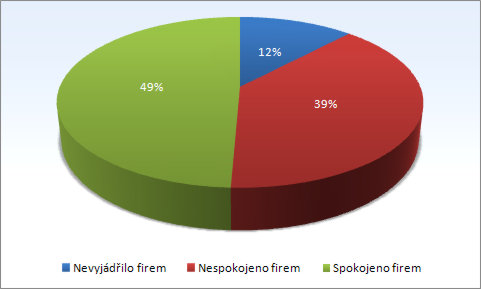
Evaluation
The primary reason for the questionnaire survey was to determine the level of language skills that graduates have. It was also to identify any deficiencies that prevent the graduates’ professional growth and are considered to be a handicap from the perspective of the employers.
One of the assumptions that our project is based on was confirmed at the district level. Language skills are not quite at the appropriate level. It is necessary to increase competencies in this area in order to ensure that the practical knowledge and skills, with which our graduates are equipped, allow them to overcome obstacles and move “freely” within the European environment. Language studies must become more attractive in order to help achieve this goal.
Computer technology will not only ensure more efficient teaching methods and provide the environment for more sophisticated forms of teaching, but will also lead students to evaluate their own results and carry out ongoing self-study activities. This will subsequently pave their way to better work evaluations and employment positions.
Another goal of the questionnaire survey was to prove – or disprove – issues pertaining to PC skills. Based on our investigation, it is obvious that approximately 50% of graduates cannot use a PC at the expected level. It is thus also of importance to devote more attention to this area. Computers and new computer technologies should be a tool for improving the quality of foreign language training.
The questionnaire survey also proved that secondary schools that train the mid-level technical employees of the future should devote more attention to the legal awareness of their graduates. Knowledge of this environment, e.g., laws, regulations, documents, etc., or the lack thereof, will respectively either help or hinder a graduate’s entry to the employment market, not only in the Czech Republic, but also within the framework of the entire European Union – where more and more professionals will be heading in the future.